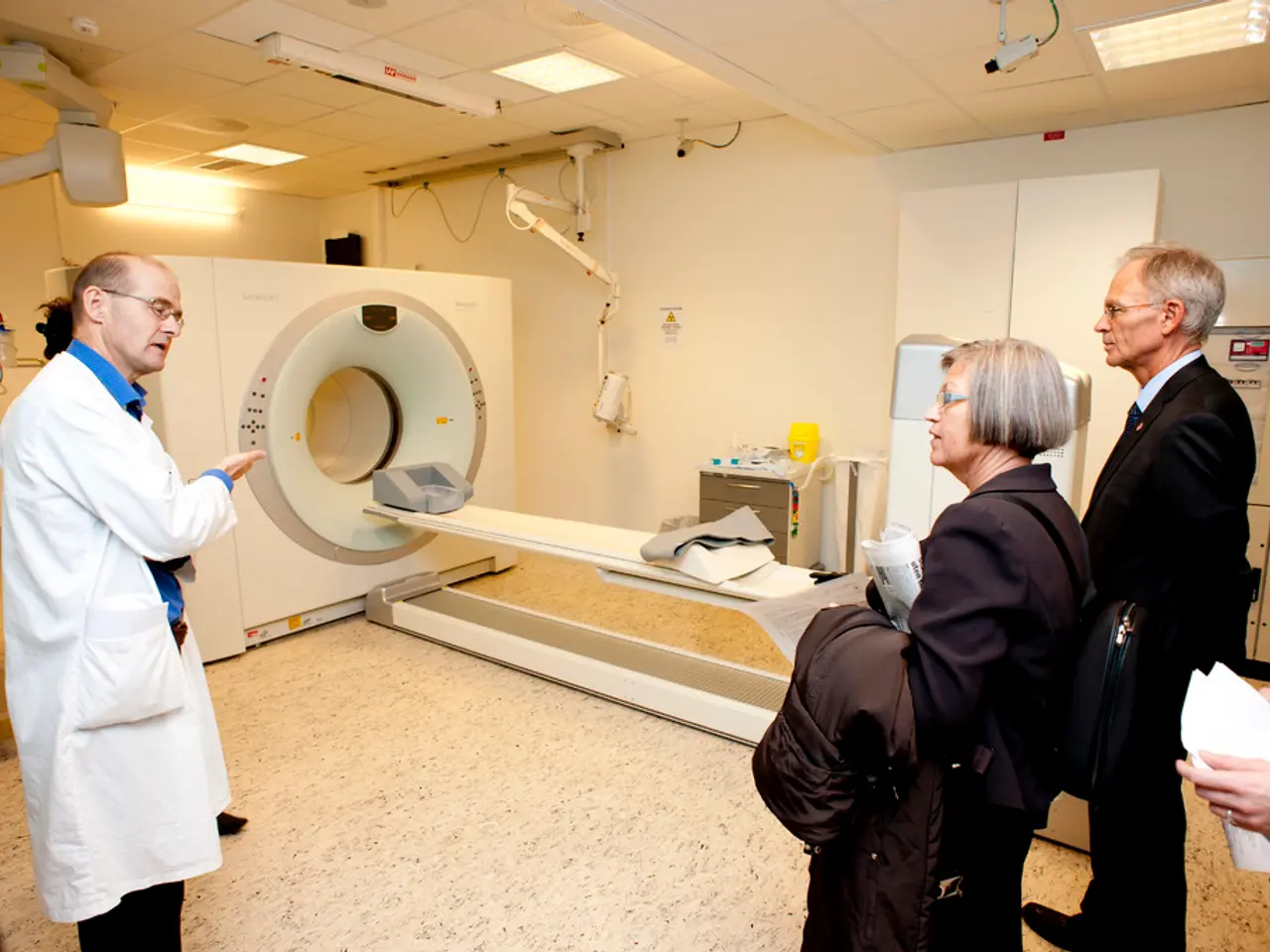Labcorp and Quest downplay the influence of 'Big Beautiful Bill' on their operations
The "One Big Beautiful Bill" (OBBB), signed into law earlier this month, has triggered concerns about the potential impact on healthcare providers, particularly Labcorp and Quest Diagnostics. However, executives at these companies have downplayed the expected impact, stating that the long-term effects on their businesses will likely be minimal.
The OBBB cuts nearly $1 trillion from Medicaid over the next decade, a move that could lead to an estimated 10 to 12 million people losing health insurance coverage. As providers of diagnostic testing services extensively used by Medicaid beneficiaries, this reduction in coverage could theoretically reduce the volume of lab testing reimbursed by Medicaid.
Despite these significant cuts to Medicaid and other safety-net programs, Labcorp and Quest executives indicate they expect these changes to have only minimal effects on their business. This could be due to diversification of their payer mix (including private insurance and Medicare), ability to shift services, or other strategic responses.
In fact, both Labcorp and Quest have raised their revenue forecasts for 2025, suggesting confidence in their ability to weather the policy changes. Quest Diagnostics CEO Jim Davis has stated that the cuts to Medicaid would have no impact next year and "very little" impact in 2027. Similarly, Labcorp CEO Adam Schechter doesn't foresee an impact on Medicaid until 2028.
CFO Sam Samad at Quest expects an impact of about 30 basis points on Quest's testing volumes in 2026 if exchange subsidies are not renewed at the end of this year. Similarly, the expiration of tax credits could have a negative impact on Labcorp of as high as 30 basis points. However, these impacts are expected to be manageable given the companies' diverse revenue streams.
The health IT and diagnostics sector, which includes companies like Labcorp and Quest, has seen increased valuation and investor confidence despite the sweeping policy changes in OBBB. This resilience suggests that the companies may indeed be well-positioned to navigate the changes brought about by the new law.
In conclusion, while the Medicaid cuts in the One Big Beautiful Bill represent a large-scale contraction in health coverage that could reduce Medicaid-funded testing volume, Labcorp and Quest Diagnostics executives anticipate only minimal long-term negative impact on their operations or financial performance. This assessment may be influenced by their diversified revenue streams and the complex payer landscape beyond Medicaid alone.
- The OBBB, with potential effects on healthcare providers, has raised concerns in light of its $1 trillion cut to Medicaid over the next decade.
- The volume of lab testing reimbursed by Medicaid could be reduced due to the estimated 10 to 12 million people losing health insurance coverage.
- Executives at lab testing providers Labcorp and Quest Diagnostics, predict minimal effects on their businesses from the OBBB.
- The resilience in the health IT and diagnostics sector, such as Labcorp and Quest, defies the sweeping policy changes in OBBB.
- Despite possible impacts on testing volumes from the expiration of tax credits or non-renewal of exchange subsidies, Labcorp and Quest Diagnostics' diverse revenue streams are expected to allow them to manage these changes.
- AI in healthcare analytics, news, policy-and-legislation, and policy changes such as the OBBB, could play a significant role in helping these companies navigate and respond to these developments.
- Healthcare providers, medtech companies, health-and-wellness organizations, and policymakers should consider the implications of the OBBB on safety, diagnostics, and the overall healthcare industry.




